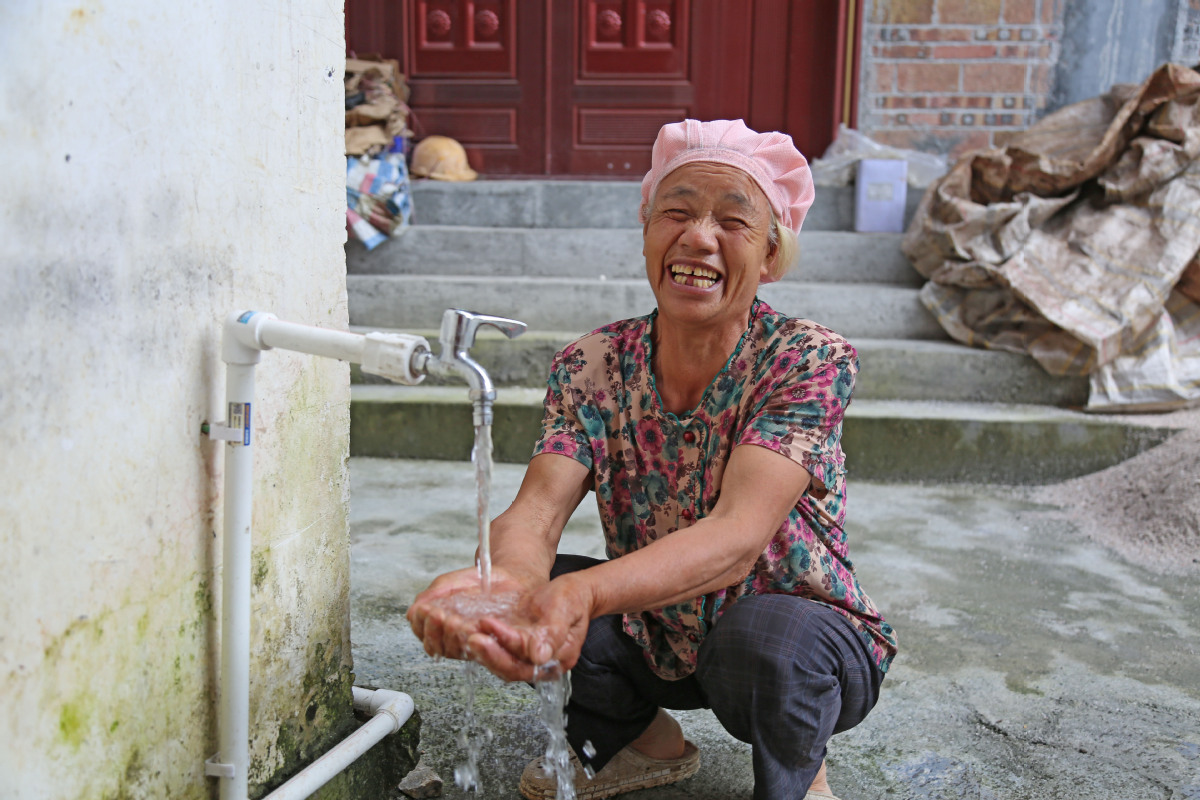Family shakes off past as village drinks to arrival of better days


Water crisis
In the village, water was the most precious commodity, especially during the dry, cold winters. "My mother told us to treasure every drop," Wei said.
The water the family members used to wash their faces was saved for hand-washing later before being given to the livestock.
In such rocky terrain, where there are few rivers, water is only found many meters underground.
The older generation depended on rainfall collecting in a large puddle near the village as its source of water. Wei said hygiene standards were questionable, which could explain the higher mortality rate among newborns at the time.
In addition, the puddle dried up in winter, when rainfall was scarce, forcing locals to travel to another village to use a trickling fountain.
The difficulties obtaining water led to Wei's grandfather-then the village head-to launch blasting operations in the mountains to search for supplies underground.
Water was found, but her grandfather lost sight in one eye during this work.
"When I descended the stone steps into this darkened cave three dozen meters below ground, I feared it could collapse any time," Wei said.
Irrigation was impossible, leaving the villagers few options other than to grow corn and soybeans, which can better survive drought but can only meet basic needs.
Rural improvements
Last year, authorities announced that Huanjiang had escaped poverty, and each family now had access to tap water.
In Wei's ancestral village, which is home to several thousand Maonan people, tap water was obtained by pumping supplies from a well drilled by the local authorities.
Huang Bingfeng, head of the county and a member of the Maonan ethnic group, said that in a nearby community of 20,000 Maonan residents, the authorities built a ditch to divert water from a river more than 12 kilometers away.
Paved roads have also been built as part of a drive to bolster rural infrastructure.
Better connectivity and irrigation have allowed locals to grow rice, mulberries and pomelos. Some residents have started work in the transportation industry as a result, while others have accepted government incentives to raise cattle and pigs, which has proved commercially successful, Wei said.
The Maonan people are among 28 smaller ethnic groups nationwide pulled out of poverty by November.
"My grandparents have died, so we seldom travel back home now. If we do, it is for the Tomb-Sweeping Festival," Wei said, adding, "We now drive to our old house."
- Efforts urged for ensuring prospects for peaceful reunification
- Shanghai Maritime University strengthens cooperation with maritime university in Poland
- Potala Palace celebrates 30 years as UNESCO World Heritage site
- New cross-regional computing service hub officially in operation in West China
- Brain-computer interface makes breakthrough by deciphering Chinese speech in brain
- Taiwan authorities urged to cease obstruction of cross-Strait media exchanges




































